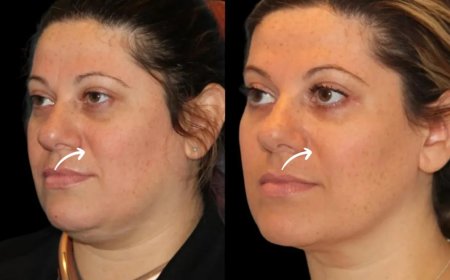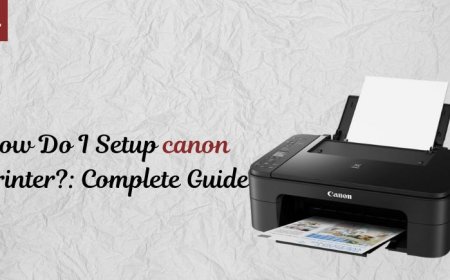Decoding Turkey Visa Types and the Specifics for Turkey Visa for Cambodians

Turkey, a transcontinental nation boasting a rich tapestry of history, stunning natural beauty, and strategic geopolitical importance, continues to be a magnet for tourists and business travelers alike. For those planning a visit, understanding the various Turkey Visa Types available is crucial. This article will provide a comprehensive overview of these categories, with a particular focus on the process and requirements for obtaining a Turkey Visa for Cambodians.
Understanding the Diverse Turkey Visa Types
Turkey's visa regime is designed to accommodate a wide array of travel purposes, from short-term leisure to long-term work or study. The type of visa you need will strictly depend on your intended activities in Turkey.
Here's a breakdown of the primary Turkey Visa Types:
-
Tourist/Businessperson Visas: These are the most commonly applied-for visas. They cater to individuals visiting Turkey for:
-
Touristic Visits: Sightseeing, holidays, recreational activities, visiting friends and family.
-
Business Meetings/Commerce: Attending conferences, seminars, fairs, exhibitions, or negotiating business deals.
-
Short-term Educational/Cultural/Sportive Activities: Participation in festivals, artistic events, or sports competitions that do not require a long-term stay.
-
Transit: For those passing through Turkey to another destination (can be single or double transit).
Many nationalities are eligible for an e-Visa (electronic visa) for these purposes, simplifying the application process significantly. The e-Visa typically allows for a stay of 30 or 90 days within a 180-day period, depending on nationality.
Official Visas: Issued to individuals on official duty, such as diplomats, government officials, or diplomatic couriers. These visas are usually processed through direct communication between governments or international organizations.
Student/Education Visas: For foreign nationals intending to pursue education, internships, or Turkish language courses in Turkey. This category includes:
-
Internship Visas (including Erasmus and AISEC programs)
-
Turkish Language Course Purpose
-
General Education Purpose
These visas generally require acceptance from a Turkish educational institution and proof of financial means.
Working Visas: Granted to individuals who have secured a job offer from a Turkish employer. This is a complex category and usually requires the employer to initiate the work permit application in Turkey before the visa application can be finalized. Sub-categories include:
-
General Employment Purpose
-
Assigned Lecturers/Academics
-
Assigned Sportspersons/Artists
-
Assigned Free Zone Workers
-
Journalists
-
Montage and Repairman Purposes
Other Visas: This broad category covers specific purposes not falling under the above, such as:
-
Archaeological Excavation/Exploration Purpose
-
Documentary Purpose (filming)
-
Tour Operator Representative
-
Medical Treatment Purposes
-
Family Reunification
-
Humanitarian Aid
It is critical to select the correct visa type as misrepresenting your purpose of travel can lead to visa rejection or deportation. For any visa type other than a straightforward e-Visa for tourism/business, applicants typically need to apply for a "sticker visa" through a Turkish Embassy or Consulate in their home country.
Turkey Visa for Cambodians: The E-Visa Route with Conditions
For citizens of Cambodia holding ordinary passports, a visa is required to enter Turkey. Fortunately, Cambodia is one of the Turkey Visa Eligible Countries for the e-Visa system, offering a more convenient application process than traditional embassy applications. However, this eligibility comes with specific conditions that Cambodian citizens must meet.
Key conditions for a Turkey Visa for Cambodians via the e-Visa system:
-
Conditional Eligibility: Cambodian citizens are eligible for a conditional e-Visa. This means that, in addition to having a valid passport, applicants must also possess a valid visa or a valid residence permit from one of the Schengen Area countries, the United Kingdom, the United States, or Ireland. It is crucial to note that electronic visas (e-Visas) from these specified countries are generally not accepted as supporting documents; it must be a physical visa or residence permit affixed to your passport.
-
Airline Requirement: Travelers are typically required to arrive in Turkey with an airline that has protocols with the Turkish Ministry of Foreign Affairs (e.g., Turkish Airlines or Pegasus Airlines). This ensures that the airline will verify the e-Visa before allowing boarding.
-
Return Ticket and Accommodation: Applicants must hold a confirmed return ticket and a confirmed hotel reservation for their stay in Turkey.
-
Sufficient Financial Means: Proof of adequate financial resources to cover the expenses during their stay in Turkey is required, generally amounting to at least $50 USD per day.
-
Passport Validity: The applicant's passport must be valid for at least 60 days beyond the "duration of stay" of their e-Visa (which for Cambodians, typically allows for a 30-day stay). Therefore, the passport should be valid for at least six months from the intended date of entry into Turkey.
-
Single Entry: The conditional e-Visa for Cambodian citizens typically grants a single entry into Turkey.
-
Online Application and Processing: The application is done entirely online through the official Turkish e-Visa website (www.evisa.gov.tr). Most applications are processed within 12 to 24 hours, but it's advisable to apply at least 72 hours before your travel date.
-
Purpose of Travel: The e-Visa for Cambodians is strictly for tourism or commercial purposes. For any other reason (work, study, etc.), a traditional sticker visa must be obtained through a Turkish diplomatic mission.
If a Cambodian citizen does not meet the criteria for the conditional e-Visa (i.e., they do not have a valid Schengen, UK, US, or Irish visa/residence permit), they will need to apply for a traditional sticker visa. As Turkey has an Embassy in Phnom Penh, Cambodian citizens can apply there. This process typically involves an online pre-application, followed by an appointment at the Embassy to submit physical documents, undergo biometric data collection, and potentially attend an interview. This traditional route usually requires more time and extensive documentation than the e-Visa.
In conclusion, a meticulous understanding of the various Turkey Visa Types is the first step towards a successful journey. For Turkey Visa for Cambodians, while the e-Visa offers convenience, it's crucial to acknowledge and meet its specific conditional requirements. Always refer to the official Turkish Ministry of Foreign Affairs website or the Turkish Embassy in Phnom Penh for the most current and accurate information to ensure a smooth and enjoyable visit to Turkey.









































